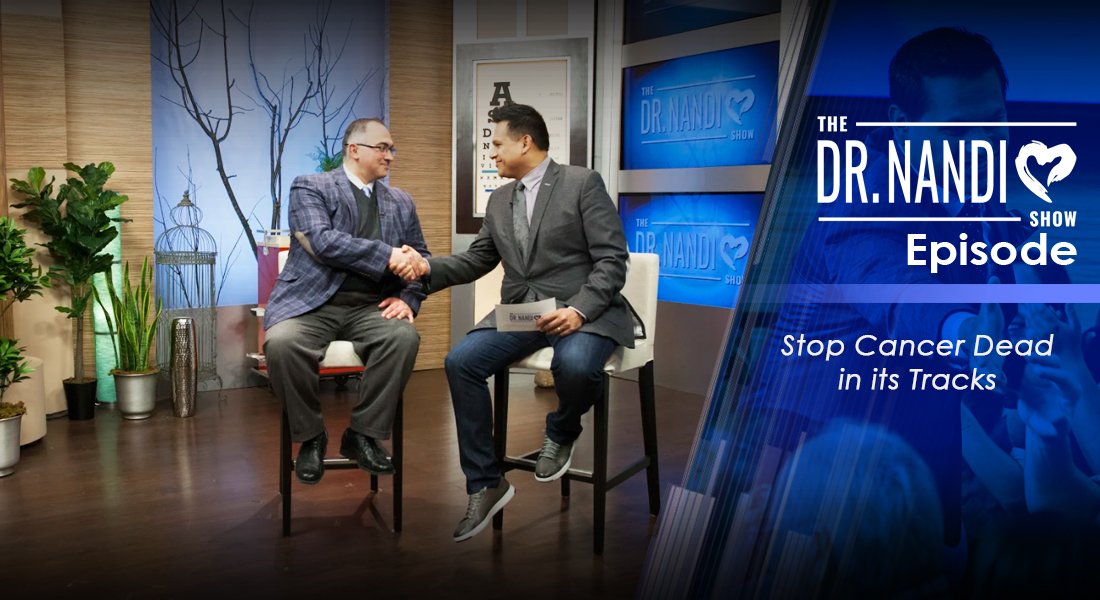
As a physician, I know there’s nothing more devastating to my patients than receiving a cancer diagnosis. For many, they feel as if they’ve been given a death sentence. However, early screening and better treatment methods are saving many lives. And that’s why I wanted to talk about this very serious topic. I have assembled a group of experts specializing in various types of cancer to talk about early detection, treatment options, and survival rates.
My first guest is Tammy Thompson. One day after church, Tammy noticed a big bump on her right breast that didn’t belong there and wasn’t there before. It was foreign and sensitive. She had regular mammograms, yet, it was self-examination when she first found the lump. She called her doctor and got a biopsy right away. She felt devastated by the cancer diagnosis. It felt like a death sentence to her. She is here to tell her story on how her world suddenly changed and what she believes saved her life.
My second guest, Dr. Eric Brown was Tammy’s surgeon. He explains that many women are confused about self-examination since everything is lumpy. Since you can develop cancer between mammograms, it is important to do self-examination and be familiar with your body to notice changes. Breast cancer is treatable and early detection is important to increase your chances of recovery. Besides self-examination, Dr. Brown also shares his thoughts on mammograms, the best age to start them and the challenge of insurance companies paying for this potentially life-saving test.
My third guest, Dr. Brian Torok is an OB-GYN who shares his knowledge on cervical cancer. Although cervical cancer is still a worldwide problem, rates have decreased by 50% over the past 30 years due to extremely effective screen protocols. Having a pap smear is the general screening method and a great way to see if cervical cells are changing. Women between 20 and 29 are suggested to have this test every three years. Because having HPV virus in your system means that you are at a higher risk for cervical cancer. Dr. Torok also shares how cervical cancer in your family is a risk factor and highlights other key risk factors that every woman should certainly be aware of.
My fourth guest, Dr. Andrew Chang is a gastric surgeon. We discuss a rare but silent and lethal disease, esophageal cancer. It is a form of cancer that basically affects your swallowing tube. By the time people show symptoms, it’s often at an advanced stage. Since all the gastric juices coming up to your throat are not the best for your esophagus, having GERD may put you under a greater risk. People often think they just have reflux when they come in, but can end up with a very frightening diagnosis. Dr. Chang also shares vital ways to reduce your risks of esophageal cancer.
My fifth guest, Dr. Amir Damadi is a colorectal surgeon who shares his expertise on colon cancer. Colon cancer is one of the deadliest cancers and the third leading cause of death. However, it is also one of the most preventable cancers. Colonoscopy as a preventative screening tool is important for early detection, early treatment, and the best outcome. Guidelines recommend starting them at age 50 unless your health or family history indicates otherwise. We also explain symptoms and prevention tips.
My sixth guest is Dr. Wendy Sadoff, a dermatologist. We discuss a deadly disease that is preventable and treatable, melanoma. Since this type of skin cancer is visible, it is easy to see new or changing moles or strange marks on the skin. And it’s extremely important to visit your doctor at the first sign to get tested. The examination is simple and it can really save lives. We also talk about methods of prevention, including the importance of sunscreen and the dangers of tanning beds.
No products in the cart.
*These statements have not been evaluated by the Food and Drug Administration. This product is not intended to diagnose, treat, cure, or prevent any disease.